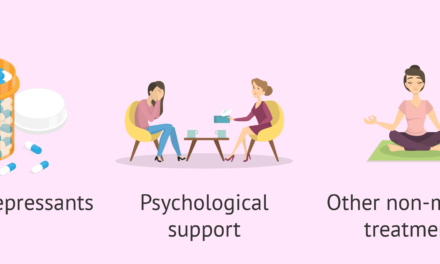Vision
Read the below full article by Pritish to learn about eyesight vision, its definition, Anatomy, and also about common conditions
There are many parts of your eye and brain that come together to allow you to see. This makes up your vision. The lens, retina and optic nerve are several important parts of your eye that allow you to transform light and electrical signals into images.
OVERVIEW
What is vision?
Your vision is what allows you to see the world around you. You have vision thanks to several components within your eye and brain that work together. These parts include the:

- lens
- retina
- Optic nerve.
Each part turns light and electrical signals into images that you can see.
ANATOMY
What parts of your eye make up vision?
There are many different parts of your eye and brain that work together to help you see. The main components of your vision include:

Human eye anatomy
Cornea
This is the front layer of your eye. The cornea is dome-shaped and it works by bending the light that enters your eye.
Pupil
The pupil is the black dot in the center of your eye that acts as a gateway for light. It expands in dim light and shrinks in bright light. It’s controlled by the iris.
Iris
This part is typically referred to as your eye color. The iris is a muscle that controls the size of your pupil and the amount of light that enters your eye.
Lens
The lens is behind the iris and pupil. It works with your cornea to focus the light that enters your eye, much like a camera. The lens brings the image in front of you into a sharp focus, which allows you to see the details clearly.
Retina
Located at the back of the eye, the retina is a layer of tissue that transforms the light coming into your eye into electrical signals. These signals are sent to the brain where they are recognized as images.
Optic nerve
This part of your vision works as the connecting element between the retina and the brain. Your optic nerve transmits the electrical signals formed in the retina to the brain. Once there, the brain creates images.
Tears
Though they are most commonly thought of in relation to crying, tears are meant to keep your eyes wet and help you focus clearly. They also help protect your eyes from irritation and infection.
CONDITIONS AND DISORDERS
What conditions could affect my vision?
There are many different conditions that can affect your vision. These conditions often interfere with the ability of light to pass from the eye to the brain. Healthcare providers can often prevent or correct many of these conditions. Conditions that affect your vision can include:

Aging
As you get older, your risk increases for vision-impairing conditions. Common disorders include cataracts (clouding of the eye lens) and age-related macular degeneration (AMD), a condition that causes loss or distortion of vision.

Damage
Injuries may cause a detached retina or a clouding of the cornea or lens. This damage can block light from passing through your eye and cause vision loss.
Development disorders
Sight problems such as amblyopia (lazy eye) occur when one or both eyes develop abnormally during childhood.

Disease
Diseases like glaucoma (increased fluid pressure in the eye) can damage the optic nerve. As a result, they impair the brain’s ability to turn electrical signals into images.
Infection
Infections in any part of the eye can affect your ability to see.
Refractive errors
Vision problems can occur when your eye doesn’t bend light properly. This issue may impair your eye’s ability to focus and cause unclear eyesight. Corrective lenses, such as glasses or contact lenses, can often improve your eyes ability to see clearly.
CARE
How can I keep my vision healthy?
There are several things to do on a daily basis to promote healthy vision. Some of these tips include:
Getting regular eye exams: Your eye doctor can identify and treat eye problems early. It’s important to schedule yearly eye care appointments, so any developing issues can be cared for as early as possible.

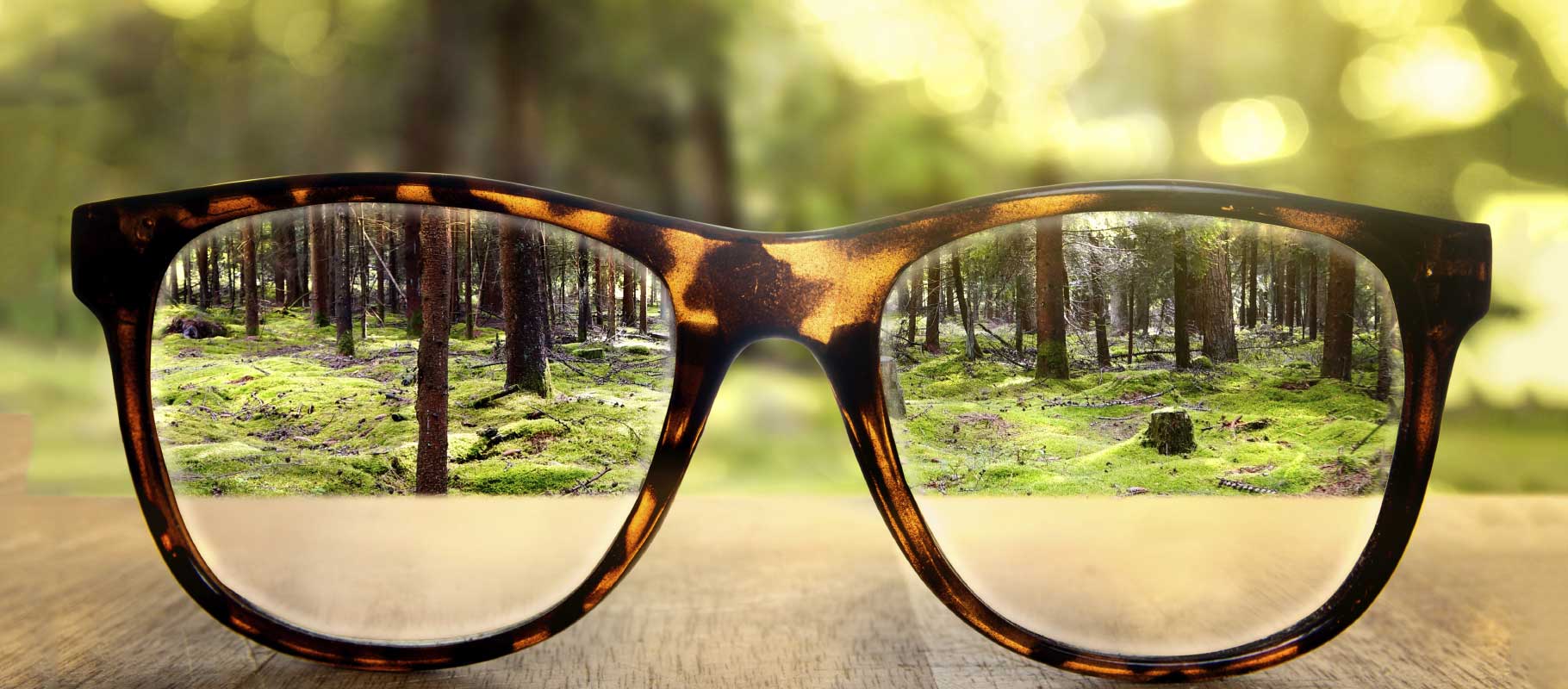
Wearing sunglasses: More than just a fashion statement, sunglasses protect your eyes from the sun’s damaging rays and can slow down the aging process of your eyes.
Wearing eye protection: If you have a job or activity where you could get an eye injury, always wear eye protection. This could include various sports, construction work or factory work.

Eating a healthy diet: Pick foods that are good for your eyes, such as fruits, vegetables, and salmon. Leafy greens (spinach, kale and collard greens) are especially healthy for your eyes.
Exercising regularly: Making time to regularly exercise can help to prevent a variety of health issues throughout your life. These can include diabetes and high blood pressure, which can cause vision problems.
Avoid smoking: Not smoking can reduce your risk of developing diseases like cataracts and macular degeneration.
6 do’s (and 6 don’ts) for your eye health
Eyes are undeniably an important part of our life – primary receptors to everything that goes around us. They are a delicate organ prone to damage resulting from ageing, lifestyle diseases, extreme exposures or accidental injuries.
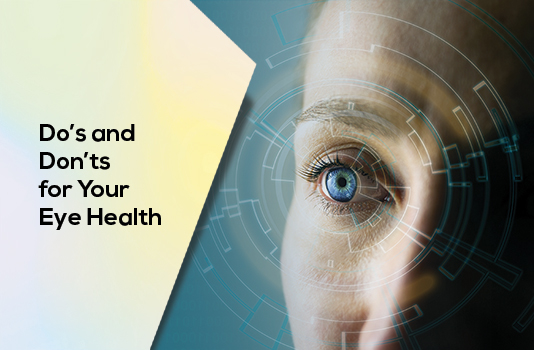
Modern lifestyle and work environment of staring continuously at the television, laptop and smartphone screens have accelerated the damage to our eyes. The blue light emitted out of the screens can cause discomfort and eye strain.
Recent research indicates an array of eye related complications like blurred vision, headaches, sore eyes, muscle strain, and dry eyes has come up to people, staring at those screens.
Good vision helps us perform efficiently – at work, home or when you’re just exploring outside. That’s why it’s important to take a little extra care of this key organ.
Taking care of the eyes is simple – browse through the list of 6 do’s and don’t to take care of those delicate eyes.
Do’s
-
Eat for your eyes
Right nutrition and healthy habits are two key things with the ability to solve almost all our body problems. A balanced diet and proper care of your eyes are enough to keep the eye doctor away.
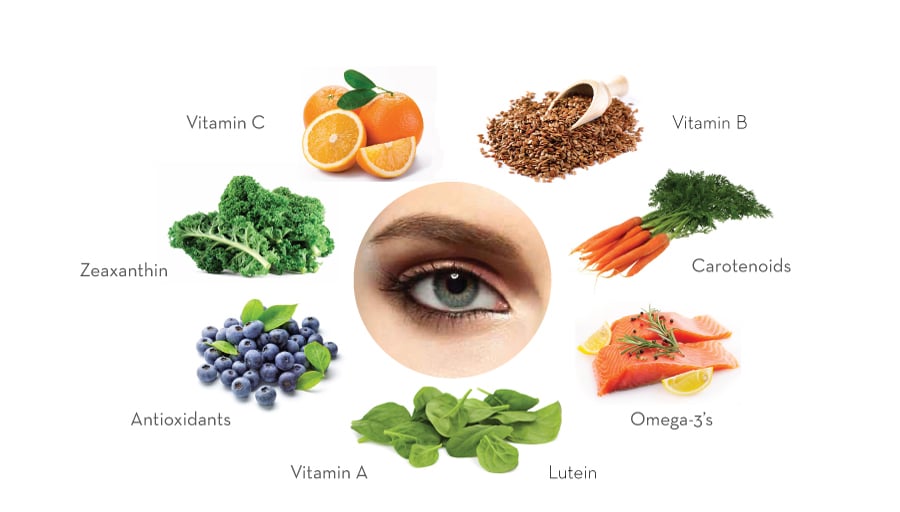
Omega-3 (specifically DHA), Lutein, Zeaxanthin, Beta carotenoids, Curcumin, Lycopene, Vitamins are key ingredients for proper vision.
Omega-3 fatty acids help in vision development and relieve dry eyes and chronic inflammation of the eyelids.
Tuna, Salmon, Flaxseed, Avocado, walnuts are some of the good sources of Omega-3 and should be a part of your regular diet.
Carrots, squash, cantaloupe, red peppers, and yellow bell peppers contain Beta carotene, which is a good source of Vitamins A.
Vitamin A along with Vitamin C, Vitamin E, Zinc, and copper reduce the risk of age-related macular degeneration (AMD), a disease that affects the central vision.
Seasonal vegetables, especially dark green leafy veggies like spinach, broccoli, and fruits like watermelon contain lutein, an antioxidant that protects and boosts eye health and therefore should be consumed in ample quantity.
-
Rest for your eyes
We use our eyes for the most part of the 24 hours cycle. They also need a break.
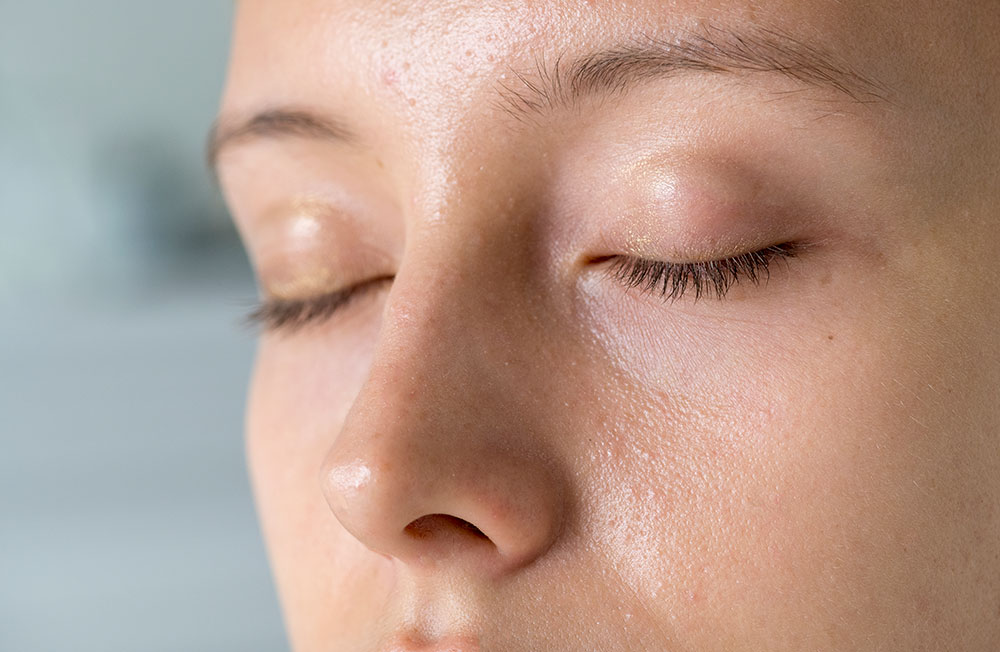
Our eye muscle starts feeling fatigued after prolonged usage and therefore a proper eye rest and good sleep are essential for healthy eyes.
Constant staring on laptops and the mobile screen doesn’t help either because it robs you of your ability to bat your eyelids – the split second but much needed rest for your eyes.
Give a break to your eyes from the laptop and smartphone.
Don’t forget the golden 20-20-20 rule i.e. after every 20 mins of looking at a screen, look at a distance of 20 ft for about 20 seconds.
-
Proper positioning of the screen for your eyes
If your work requires you to be in front of a screen for a longer duration, position your screen to about 20-24 inches from your eyes and at an angle of 10-150 below your eye level.
Our eyes will close slightly when we are viewing the screen, which minimizes the fluid evaporation from our eyes.
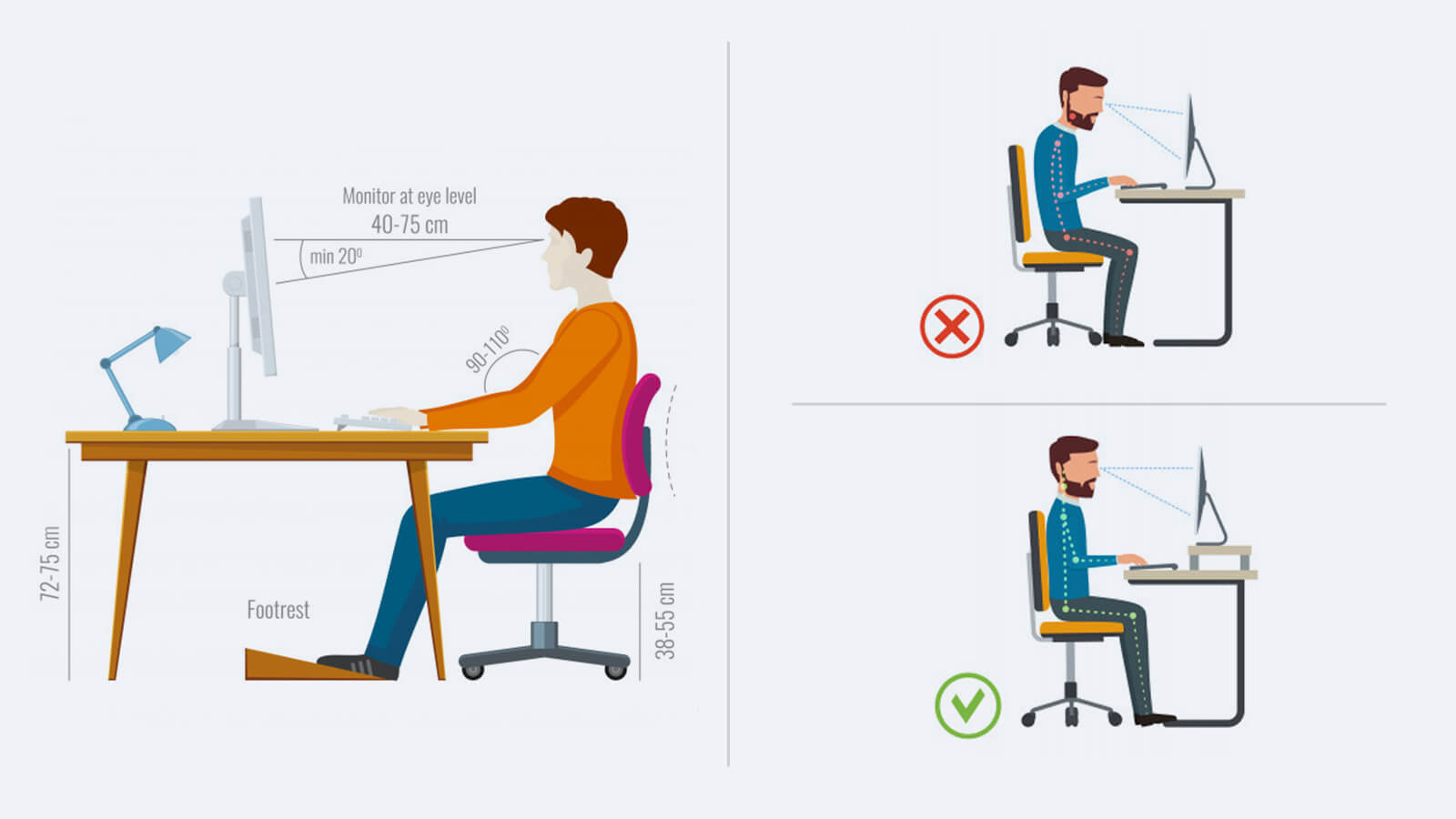
-
Be Protective of your eyes
Protect your eyes from the dust, extreme heat, glint, and sunlight.
Check the product expiry date of everything that we out into our eyes. This includes eye drops, eye lotions, and eye makeup.

Check the status of cosmetic products as well. Bacteria hanging around in mascara or other eye cosmetics can end up causing an eye infection.
-
Wash hands for your eyes
Many of the common eye infections are infectious in nature and can easily transmit from one person to another.
Adopt the habit of washing hands as and when required including before and after putting contact lenses.
This can prevent you from catching common illnesses such as common cold (watery eyes), pink eye, skin infection as well as avoid something unwanted to enter your eyes through your hands (for e.g. spicy hands, infecting contact lenses)
-
Exercise for eyes
Avoid eye fatigue by doing a set of exercises. Use multiple simple exercises to provide rest to your eyes.
Incorporate the golden 20-20-20 rule every time you are staring at a screen too long.

Rub your palms and place them on your eyes. Hold them there for 5 seconds. Repeat it at least 5-10 times.
Simple eye exercises provide our eyes much needed rest and relax the strain on eye muscles.
Don’ts –
-
Don’t stare at a screen for too long
Don’t spend too long staring at the screen of your laptop or smartphone.
While the ‘night mode’ and ‘anti-glare’ features claim to reduce eye strains, the best option is still to switch off the screen.

Give your eye break and walk around for a few minutes after every hour of working in front of a laptop screen.
-
Don’t smoke
While the effects of smoking on lungs are well known, it is relatively less common knowledge that smoking can affect your vision too.


Smoking generates additional free radicals thus challenging the neutralization capacity of natural antioxidants in the body. The increased number of free radicals put oxidative stress on the eyes and damage the lens proteins
-
Don’t skip on the eye test
Don’t skip on the regular checkup of your eyes.
Getting a regular eye exam can help in detecting early signs of blurry vision, cataract, damage to the retina, or eye issues like glaucoma, diabetic eyes, and macular degeneration.
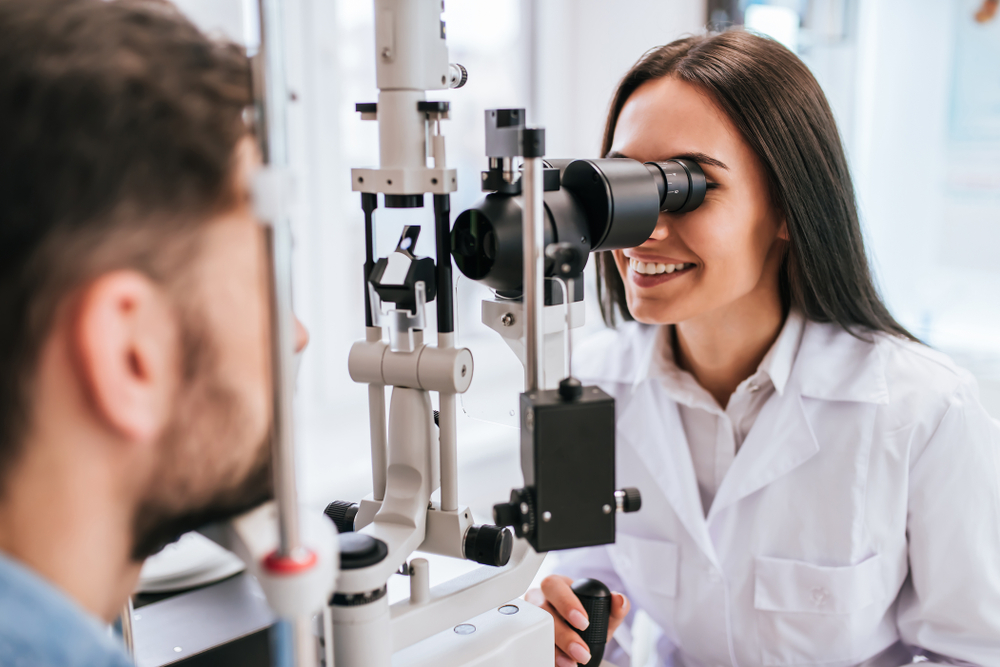
-
Don’t read/work in poor lighting
Our eyes are already prone to fatigue. Don’t overstress them by working in low light or moving conditions.
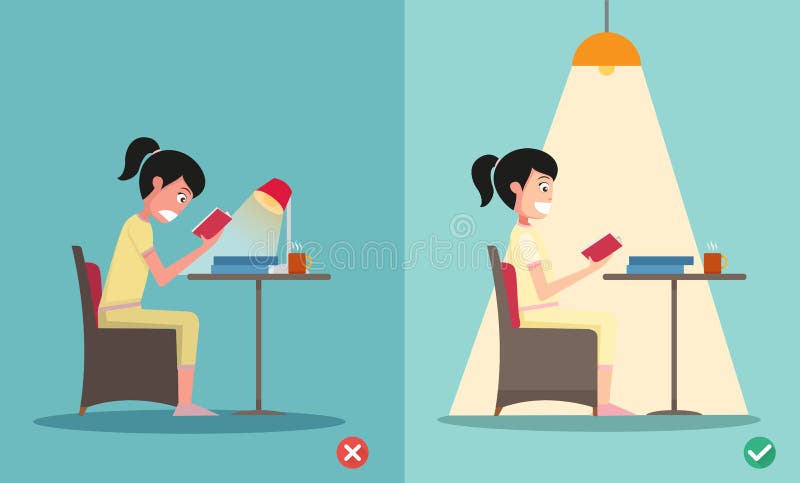
Our eyes have to do additional work to focus when either the subject is moving (car, train, etc.) or the light is not ambient (dim or extremely bright light).
-
Don’t expose your eye to glares
The retina of the eye is a sensitive part.
Do not expose your retina to glare or glint or direct exposure by staring too long at sunlight, bright lights, laser pointers, screens.
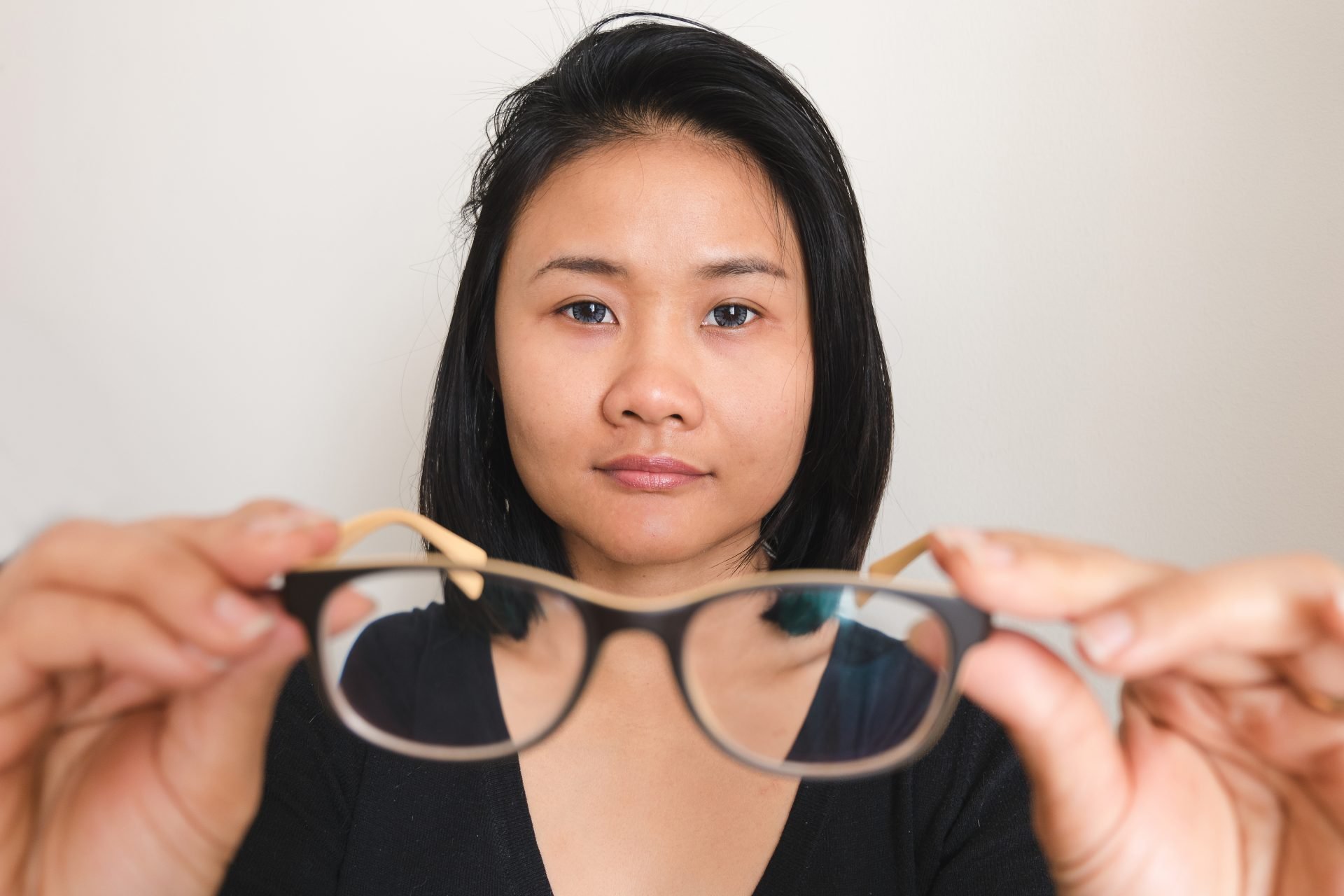
Protect your eyes with appropriate sunglasses, anti-glare lenses.
-
Don’t stay inactive throughout the day
Being active also helps us stay healthy. The physical activity along with a good diet lowers the risk of conditions like obesity, diabetes, high cholesterol, etc. which carries a risk of vision impairment with them.

Bottom Line
The eye is an important but delicate organ of our body. It’s an asset that enables us to not only see the marvels of the world but function our daily activities smoothly and efficiently.
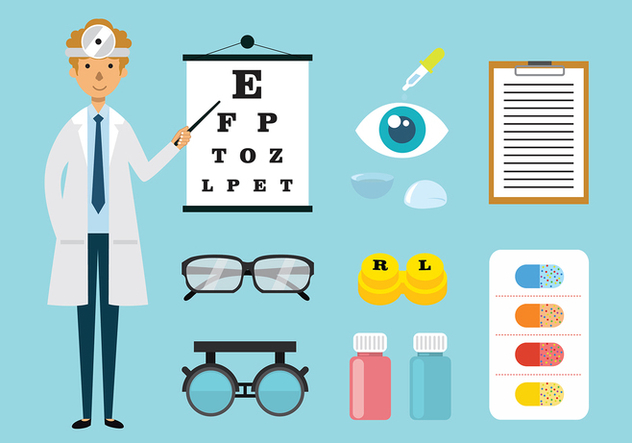
Taking a little extra care, eating right, providing rest and avoiding things that can damage your eyes is all that is needed to enjoy the world. Not through a lens or in black color but in its full glory of more than 65 million colors that your eye can visualize for you.
FREQUENTLY ASKED QUESTIONS
Are there different types of doctors for eye care?
There are two types of eye doctors, and they are different from your primary care physician. An optometrist is a doctor of optometry who treats vision and eye health problems. An ophthalmologist is a medical doctor who treats these issues and also performs eye surgery.
How will my doctor test my vision?
Your doctor will do an eye exam in an office setting during a regular appointment. There may be several tests during this appointment. You may be asked to cover one eye at a time and read a chart. Your doctor may also give you eye drops to dilate your eyes. This increases the size of your pupils. This test allows your doctor to see any signs of damage or disease in your retina or optic nerve.
When should I call my doctor about my vision?
Seek emergency medical treatment at an emergency room if you experience sudden vision loss. Sudden loss of vision can be a sign of a serious medical problem. Call your eye doctor if you experience sudden blurry vision or flashes of light or if blurry vision interferes with your daily activities. If you have a family history of vision problems, you should have eye exams every year to monitor your eye health and vision.
Reference







